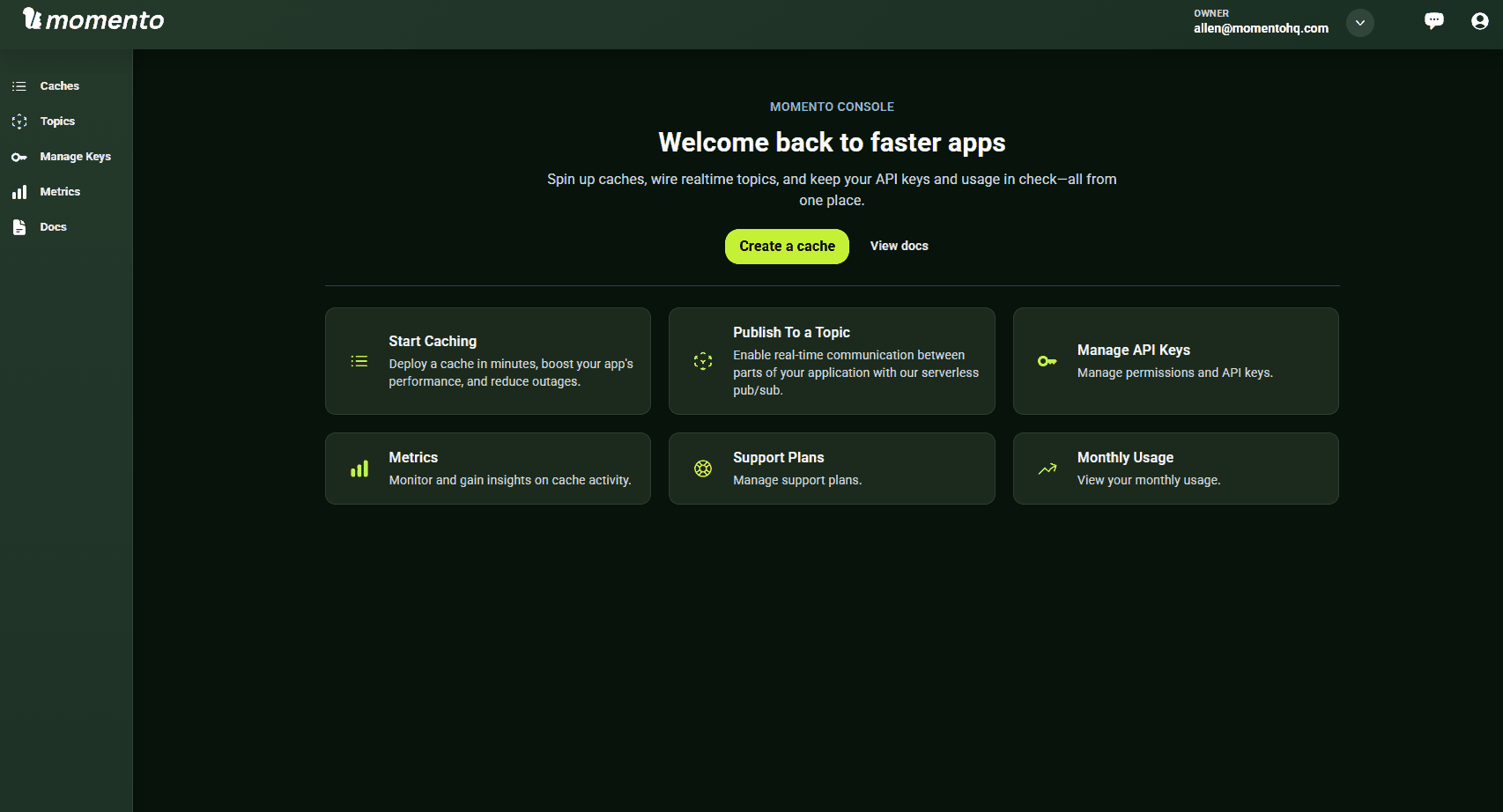Getting started with Momento Cache
If you're looking to jump in and get started with Momento Cache, you've come to the right place.
Pre-requisites
Follow our step-by-step instructions to create an API key via the Momento console. Come back here when you have your key.
Using the Momento console

Using the Momento CLI
You can also install the Momento CLI locally (Linux, Windows, Mac) if desired. The latest version of the CLI and instructions for installation and usage is available in this repo.
Using the Momento SDKs
Ready to start writing some code? Check out our SDKs page for a list of all of our supported languages. Each SDK has a quick start for using Momento Cache or Topics. Here are direct links to a few of the most popular ones: